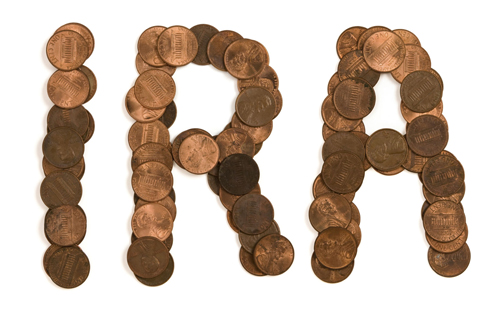Take Your RMD On Time, But You Might Want To Add To It
Published Friday, November 20, 2015 at: 7:00 AM EST
Under the rules for required minimum distributions (RMDs), you generally have to withdraw money from employer-sponsored retirement plans and traditional IRAs when you're in your 70s, whether you want to or not. But here's a way you might beat the IRS at its own game: Take out more than the required amount and convert the excess into a Roth IRA.
 You have to start making annual withdrawals from retirement plans, such as 401(k)s, and IRAs in the year after the year you turn 70½. You may be able to postpone RMDs for qualified plans (but not IRAs) if you're still working for the employer providing the plan and you don't own the company. RMDs for the current year are calculated from life expectancy tables and your account balance on December 31 of the prior year.
You have to start making annual withdrawals from retirement plans, such as 401(k)s, and IRAs in the year after the year you turn 70½. You may be able to postpone RMDs for qualified plans (but not IRAs) if you're still working for the employer providing the plan and you don't own the company. RMDs for the current year are calculated from life expectancy tables and your account balance on December 31 of the prior year.
The penalty for failing to take the required RMD is equal to 50% of the amount you should have withdrawn. That's added to the regular income tax you owe.
You can't convert an RMD into a Roth IRA. However, if you take out more than the amount required by the life expectancy tables, you can convert that excess into a Roth. After five years, any distribution from the Roth is tax-free. And if you don't need the money, it can stay in the Roth as long as you live and be passed along to your heirs.
Other factors may come into play. We can help you decide whether this could work for you.
This article was written by a professional financial journalist for Preferred NY Financial Group,LLC and is not intended as legal or investment advice.
An individual retirement account (IRA) allows individuals to direct pretax incom, up to specific annual limits, toward retirements that can grow tax-deferred (no capital gains or dividend income is taxed). Individual taxpayers are allowed to contribute 100% of compensation up to a specified maximum dollar amount to their Tranditional IRA. Contributions to the Tranditional IRA may be tax-deductible depending on the taxpayer's income, tax-filling status and other factors. Taxed must be paid upon withdrawal of any deducted contributions plus earnings and on the earnings from your non-deducted contributions. Prior to age 59%, distributions may be taken for certain reasons without incurring a 10 percent penalty on earnings. None of the information in this document should be considered tax or legal advice. Please consult with your legal or tax advisor for more information concerning your individual situation.
Contributions to a Roth IRA are not tax deductible and these is no mandatory distribution age. All earnings and principal are tax free if rules and regulations are followed. Eligibility for a Roth account depends on income. Principal contributions can be withdrawn any time without penalty (subject to some minimal conditions).
© 2024 Advisor Products Inc. All Rights Reserved.
